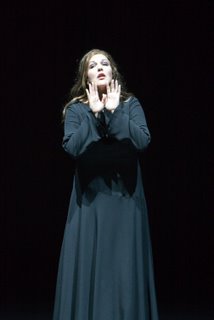Lohengrin or Diana Damrau? How’s that for a tough decision! That was the choice I had to make when planning my trip to the 2009 Münchner Opernfestspiele. I decided to forgo the
Lohengrin premiere so I could go the one-night-only recital by soprano Diana Damrau. Luckily, there will be several more performances of the Wagner, the second of which I will attend on July 8. Long after having booked the tickets, it was announced that the opening of
Lohengrin would be shown on a giant screen in the Max-Joseph Platz in front of the National Theater. The weather was suitably operatic today – a heat wave having given way to bouts of heavy downpour interspersed by brilliant sunshine. It was really touch and go whether the open-air simulcast, part of Munich’s
Oper für alle outreach program, would be rained out. As it turned out, there were brief showers in Act One, which began at 6 pm, but the heavens took pity on the opera lovers braving the elements to enjoy Jonas Kaufmann’s first Lohengrin. Since I was a couple of miles away at the Prinzregententheater for the Damrau recital, I did not experience the performance. After Damrau finished at a little after 10 pm, we rushed by U-bahn to the National Theater, only to see people leaving the square. We managed to meet up with a friend and got a brief report, but since I did not see it, I will reserve my comments until after I have seen the July 8 performance.
What can I say about Diana Damrau? She is simply the hottest coloratura around these days. I saw her incredible Zerbinetta last year right here in Munich, also at the Prinzregententheater, in the Robert Carsen production of
Ariadne auf Naxos that starred Canada’s own Adrianne Pieczonka. Not only is Damrau a great singer, she is also a totally alluring actress. One got a real taste of it tonight. Her program included songs by Faure, Debussy, and Richard Strauss, all “chestnuts” – not a single unfamiliar song. The only rarity on the program was a song cycle called Day turned to night by contemporary composer Iain Bell (b. 1980), with song texts from Queen Victoria’s writings concerning her love for Prince Albert! It turned out to be a very interesting and accessible cycle of five songs, beginning with a letter the then Princess Victoria wrote to her uncle, King of the Belgians, upon meeting Albert. The last song is from a letter by Queen Victoria to her daughter, the Crown Princess off Prussia, after the death of Albert. This cycle for some reason reminds me of
Frauenliebe und Leben, of course only superficially as the content is very different. Damrau sang it with great dramatic commitment, in really quite good English. I read the text over once at intermission and did not refer to it during the performance, wanting to see how much I could understand what she was singing. I was able to understand quite a bit of it. At the end of the cycle during the applause, Damrau gestured to someone sitting directly in front of her in the audience. This person turned out to be the composer, who joined Ms. Damrau for a bow onstage.
Given that it was a contemporary cycle and in a “foreign language”, it would be fair to say that the Bell cycle drew warm enough applause but not the tumultuous reception the audience reserved for the more familiar pieces on the program. Damrau began with a group of six Faure songs. These pieces sit very well in her voice. Despite being a high soprano, Damrau has an unusually warm and full middle voice, and she sang these with plenty of expression and attention to the textual nuances. The seven Debussy songs that followed were even better. Her silvery tone is absolutely ideal and it was a scintillating performance. Damrau’s voice is blessed with a whole palette of tone colours, unlike so many high sopranos with glassy voices and relatively little dynamic variation. Damrau sang with plenty of chiaroscuro, including some wonderful pianissimos tonight! She was also playful onstage when called for in the text, altogether a winning first half. After the intermission, she sang the Bell cycle, followed by Strauss’s
Drei Lieder der Ophelia, op. 67. I can’t say this is my favourite Strauss, but Damrau’s performance was superb in every way. She saved the best for last, three of the most beautiful of Strauss songs –
Morgen, Wiegenlied, and
Cäcilie. These brought the house down, needless to say! Throughout the recital, her pianist, the great Helmut Deutsch, offered expert support. He is certainly among the half-dozen or so greatest collaborative pianists on the circuit today. Damrau gave three encores, all Strauss, but the only one I can recall is Nichts. A lovely Liederabend is always something to treasure, and this was one of them. Now onto
Lucrezia Borgia with La Gruberova tomorrow!
Labels: Diana Damrau, Munich Opera Festival
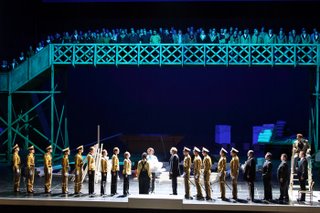
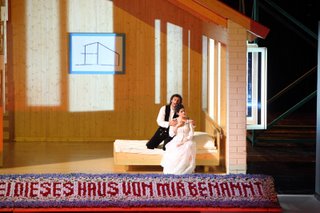 Photo: Wilfrid Hosl
Photo: Wilfrid Hosl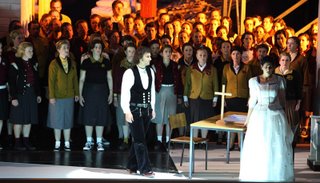

 Photo: Wilfrid Hosl
Photo: Wilfrid Hosl
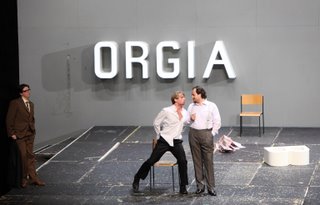 Photo: Wilfrid Hösl
Photo: Wilfrid Hösl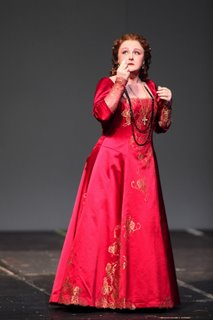
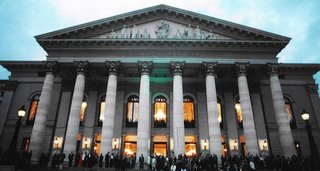 by Joseph So
by Joseph So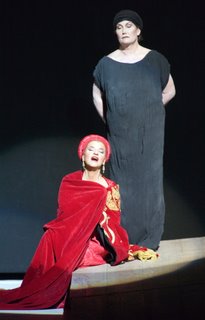 Photo credit: Wilfrid Hoesl
Photo credit: Wilfrid Hoesl